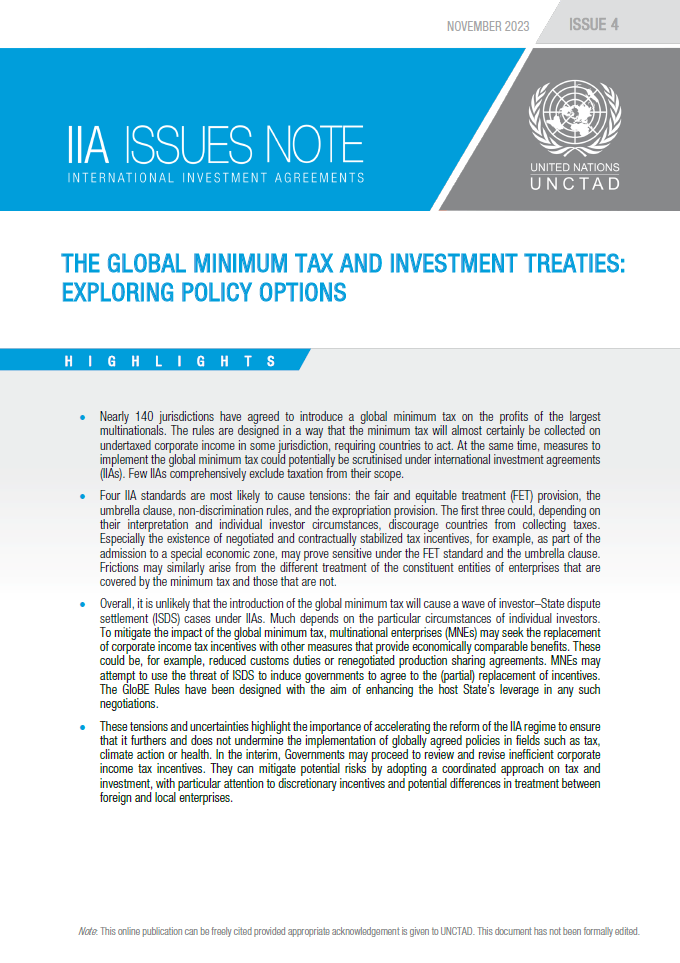The Global Minimum Tax and Investment Treaties: Exploring Policy Options
This IIA Issues Note elaborates on the relationship between the global minimum tax and international investment agreements (IIAs). It presents those elements of the global minimum tax that are most likely to cause tensions from the perspective of investment protection disciplines and assesses the actual and perceived legal risks that IIAs pose to the implementation of the minimum tax.
Nearly 140 jurisdictions have agreed to introduce a global minimum tax of 15 per cent on the profits of the largest multinationals. To implement this agreement, the Global Anti-Base Erosion (GloBE) Rules have been developed at the OECD. The rules are designed in a way that the minimum tax will almost certainly be collected on undertaxed corporate income in some jurisdiction, requiring countries to act. At the same time, measures to implement the global minimum tax could potentially be scrutinised under international investment agreements (IIAs). Few IIAs comprehensively exclude taxation from their scope.
Four IIA standards are most likely to cause tensions: the fair and equitable treatment (FET) provision, the umbrella clause, non-discrimination rules, and the expropriation provision. The first three could, depending on their interpretation and individual investor circumstances, discourage countries from collecting taxes. Especially the existence of negotiated and contractually stabilized tax incentives, for example, as part of the admission to a special economic zone, may prove sensitive under the FET standard and the umbrella clause. Frictions may similarly arise from the different treatment of the constituent entities of enterprises that are covered by the minimum tax and those that are not.
Overall, it is unlikely that the introduction of the global minimum tax will cause a wave of investor–State dispute settlement (ISDS) cases under IIAs. Much depends on the particular circumstances of individual investors. To mitigate the impact of the global minimum tax, multinational enterprises (MNEs) may seek the replacement of corporate income tax incentives with other measures that provide economically comparable benefits. These could be, for example, reduced customs duties or renegotiated production sharing agreements. MNEs may attempt to use the threat of ISDS to induce governments to agree to the (partial) replacement of incentives. The GloBE Rules have been designed with the aim of enhancing the host State’s leverage in any such negotiations.
These tensions and uncertainties highlight the importance of accelerating the reform of the IIA regime to ensure that it furthers and does not undermine the implementation of globally agreed policies in fields such as tax, climate action or health. In the interim, Governments may proceed to review and revise inefficient corporate income tax incentives. They can mitigate potential risks by adopting a coordinated approach on tax and investment, with particular attention to discretionary incentives and potential differences in treatment between foreign and local enterprises.
















